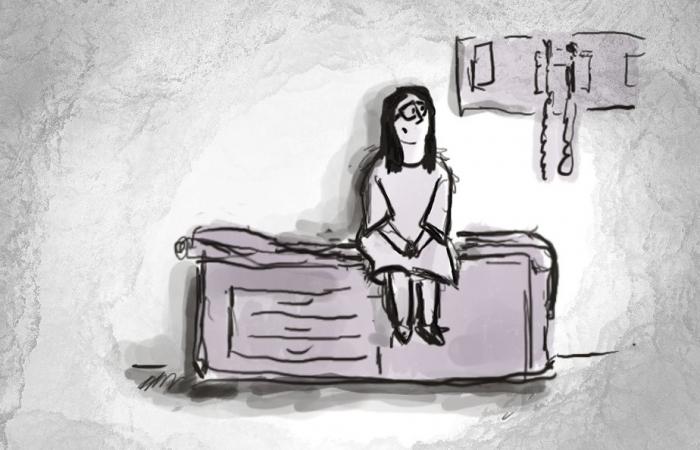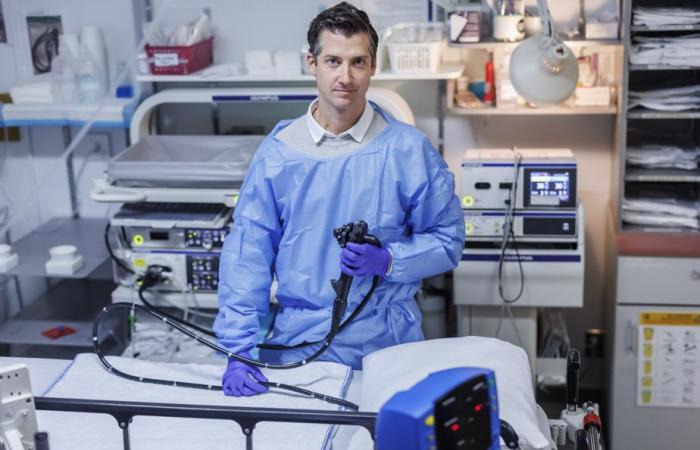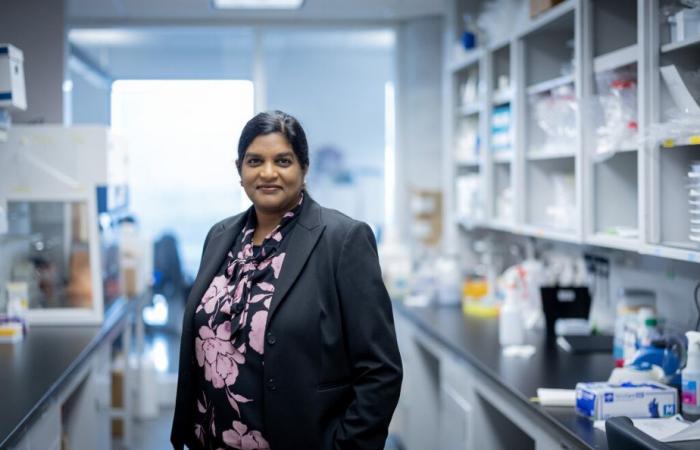At the time, I didn’t realize what my surgeon was telling me. It was the day before the operation where she was to remove this “mass of unknown nature” in my intestines, revealed a few weeks earlier by a colonoscopy. On the phone, my doctor had just made sure that I had taken the required medications before the scalpel, when she blurted out: “In fact, in light of the pre-operative tests, I am preparing to remove a cancerous tumor from you. »
Posted at 5:00 a.m.
I remember thinking… nothing. I had considered this possibility, but it made no sense to me. A quick search revealed to me the four most common risk factors for colorectal cancer: male, over 50, obese, sedentary. I was a fit 44-year-old woman – I had run my third half marathon a few months earlier. So, no, it couldn’t be “it”.
The next day, once I had emerged from the haze of anesthesia, my surgeon confirmed her diagnosis: a beautiful tumor the size of a billiard ball had been removed from my colon. I was lucky: no metastases, no need for chemo. A few weeks of convalescence, and presto, I was back to the usual program.
I was very lucky. I didn’t have time to realize I had cancer until it was already gone. I even made it a subject of jokes. “You don’t know what happened to me? I had cancer for 24 hours! »
But the psychological remission was much longer.
The cancer somehow stayed there in my head. Why me? What had I done “wrong”?
Doctors and specialists shrugged their shoulders. “It happens,” they replied.
Actually, yes, it’s true, “it happens”.
But the problem is that cancer at 40 “happens” more and more often.
“Honestly, it scares us”
At the start of his practice, barely ten years ago, Dr François Letarte, specialist in gastrointestinal surgery at the University Hospital of Quebec, rarely saw cases of cancerous tumors among people in their forties. Not anymore. “It still shocks us, but we’re a little more used to it,” he said.
Cancer cases in people under 50 represent only 10% of cases diagnosed each year in Canada. But more and more data published in the West shows that, for certain cancers, the number of cases is now increasing disproportionately among what researchers refer to as “young adults.”
In other words, members of generations X and millennials suffer from cancer more often than their elders when they were the same age.
This is particularly the case for colorectal cancer, one of the four cancers most often diagnosed in Canada, and one of those, along with breast cancer, for which the increase in cases among young adults is the most noticed.
PHOTO PASCAL RATTHÉ, SPECIAL COLLABORATION
The Dr François Letarte, gastro-intestinal surgery specialist at CHU in Quebec
At the beginning of the 2000s, cases of colorectal cancer in people under 50 represented 5% of cases. In 2030, according to American data, it is expected that they will represent around 30 to 40% of cases. It’s quite scary.
The Dr François Letarte, gastro-intestinal surgery specialist at CHU in Quebec
Of the fifteen cases examined each week by the group of surgeons to which Dr.r Letarte, at least one or two now concern patients under 50 years old. “And we also see a lot of it in patients in their thirties, and even in their twenties. » A phenomenon observed everywhere in the West.
At the Research Center of the University of Montreal Hospital Center (CHUM), in Montreal, the concerns of Dr Letarte resonate with the Dre Saima Hassan, surgical oncologist and breast cancer specialist. She too has noticed that the number of her young patients in their twenties, thirties and forties is increasing. In the last year, the phenomenon has particularly hit her and her team. “Honestly, it scares us. »
In a Canadian study published last April, researchers estimated that cases of breast cancer in their twenties increased by 45%. “It’s a lot,” said the D.re Hassan.

PHOTO MARCO CAMPANOZZI, LA PRESSE
The Dre Saima Hassan, surgical oncologist and breast cancer specialist at CHUM
There is something we don’t understand well enough.
The Dre Saima Hassan, surgical oncologist and breast cancer specialist at CHUM
Many of these cancer cases may be associated with risk factors, including heredity and genetics. “But there are also things that we don’t understand,” adds the Dr Letarte. “When I look at the last patients I operated on who were in their early thirties or early forties, they were not necessarily inactive people or with poor lifestyle habits. Clearly, there have been changes in the environment. »
What changes are we talking about? Foods we eat? The air we breathe? Stress, the ozone layer, GMOs, acid rain, volatile organic compounds and bisphenol A?
“We have a lot of hypotheses, but no clear answers,” must admit doctor François Letarte to his young patients. “It sometimes generates a lot of frustration, especially among young people. »
17 cancers on the rise among X-ers and millennials
According to the American Cancer Society, of 34 types of cancers most common in the United States, 17 are increasing among the Generation X (people born between 1965 and 1980) and millennial (1981-1996) cohorts.
- Cancer be you
- Pancreatic cancer
- Cancers of the digestive system (stomach, gallbladder, small intestine, colorectal, etc.)
- Liver cancer
- Uterine and ovarian cancers
- Anal and testicular cancers
- Certain kidney and blood cancers (myeloma)
Millennials born in the 1990s have incidence rates of certain cancers (pancreatic, kidney and small intestine) two to three times higher than baby boomers born in 1955.
Learn more
-
- + 80 %
- Increase in cancer cases among those under 50 since 1990
Source : BMJ Oncology, 2023








